Nicholas Dlamini: Tour de France diversity has taken a 'disturbing step-back'
‘Cycling still has an enormous way to go in order to be a sport for all’ says the rider

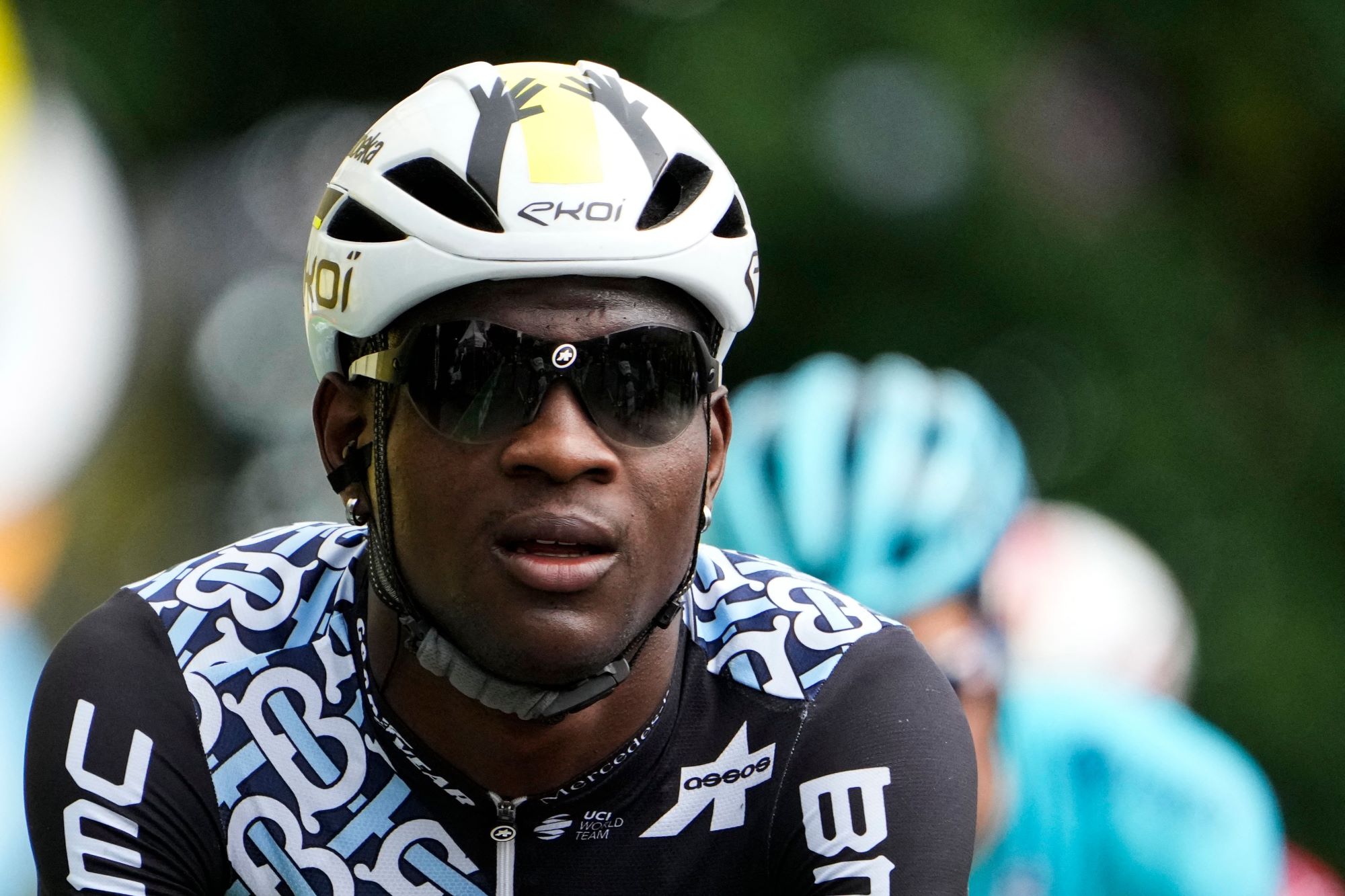
The latest race content, interviews, features, reviews and expert buying guides, direct to your inbox!
You are now subscribed
Your newsletter sign-up was successful
In Copenhagen last Friday there was a notable absence from the Tour de France grand depart, not a single black rider was present on the start line.
Last year, Nicholas Dlamini (Team-Qhubeka) was the first black South African rider to participate, and in an exclusive interview with Cycling Weekly, Dlamini says the lack of black riders at the Tour de France in 2022 certainly feels like a retreat from the progress made last year.
"You know, it's actually quite a disturbing thing. It's the biggest event, the biggest cycling event in the world. And yet, in 2022 there are no black riders in the peloton. For me, it was really disturbing. And I really felt the need to speak about it. You know, just to get to hear what a lot of people actually think about it” says Dlamini.
“To be honest, last year, I really felt like there was progress with this. To see this year that there's actually no black riders again was really a disappointment and a huge step back, actually. You know, now going forward, what's going to be done about it?” he adds.
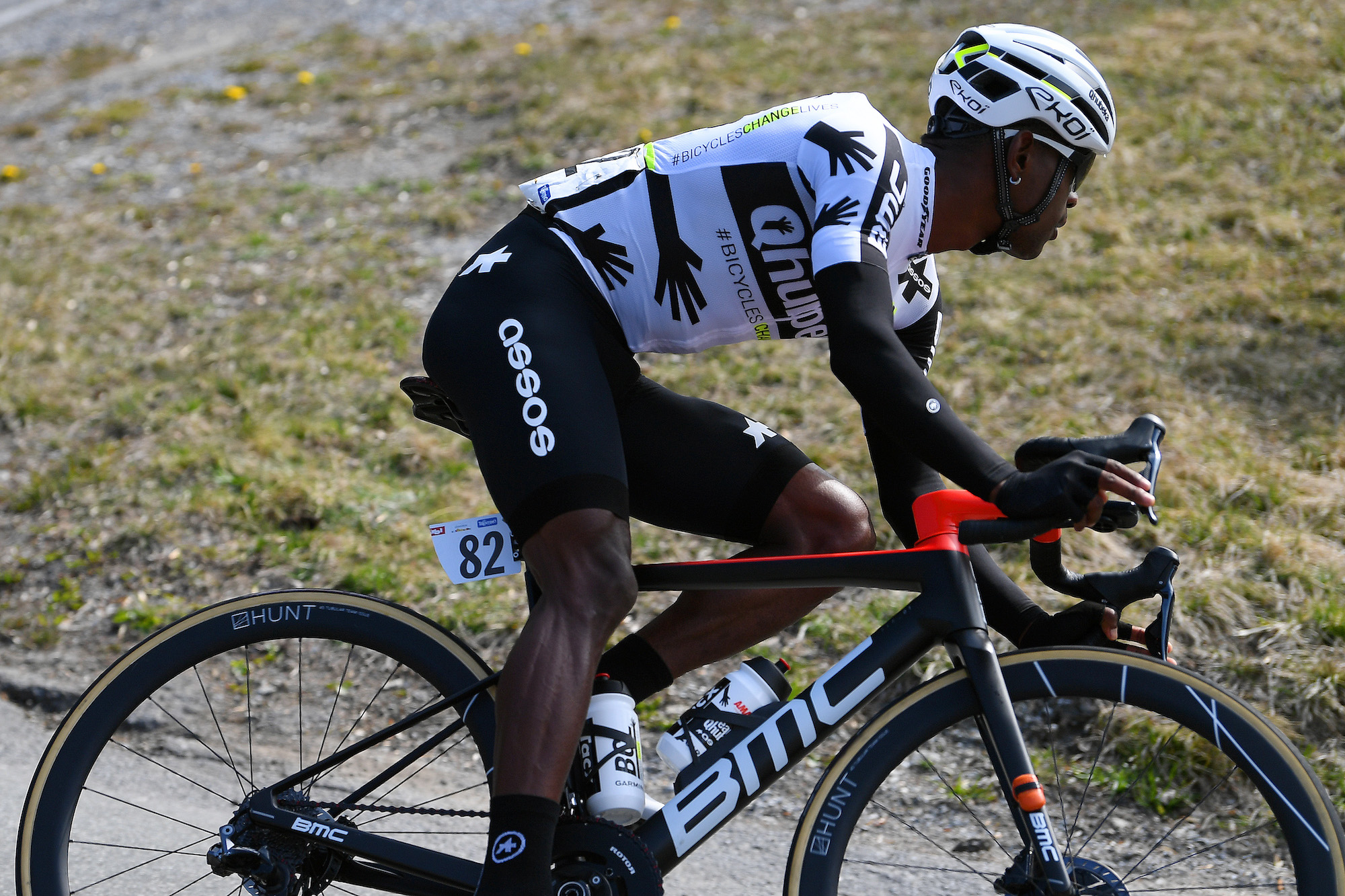
Step one of solving that is using the talent already available, Dlamini argues. There are plenty of Black African riders who are good enough to be in the Tour Dlamini insists, but World Tour teams need to do more.
“I mean, the riders are there, they always have their hands up. It is everyone's dream to be at the Tour de France.”
The South African rider realised that dream himself last year. Dlamini unfortunately didn’t make it to Paris. However he plans to return and is determined to achieve his dream of becoming a Tour de France finisher. Dlamini currently rides at Continental level for Team Qhubeka.
The latest race content, interviews, features, reviews and expert buying guides, direct to your inbox!
Once Team-Qhubeka folded, the 26 year old says that opportunities for Black African cyclists were immediately affected.
“A lot of people were so excited for the Tour that they had actually forgotten I think that there are no black African cyclists there. Even that Team-Qhubeka is not there. It was mainly our team that would have an African rider like last year with me. A lot of people have actually just forgotten about it,” Dlamini said.
STRENGTH IN UNITY
However Dlamini says that other riders were aware of the lack of diversity in 2021 and spoke to him about it.
“A few people mentioned the issue to me. Although it definitely wasn’t spoken about enough. Everyone is busy looking after themselves, stressing around contracts after the pandemic but some still raised it with me. Guys that came from the UK and America in particular as in their home countries they’re used to it, they come from diverse countries so they’ve always been surrounded by black people," he explains.
In ‘Reflections’ the piece that Dlamini wrote on Twitter last week (which he informs us no other journalists had called him about), he highlighted young, talented Black African cyclists whom he believes are one’s to watch.
Dlamini wrote: “We’ve seen great rides this year from former Team Qhubeka teammates in Natnael Tetsfatsion and Henok Mulubrhan amongst others, and there’s a fine crop of youngsters here in Lucca with me-Negasi Haylu Abreha, Nahom Zeray Araya, Efrem Gebrehiwet Araya, Ghrebrehiwet Birhane and Travis Stedman; so the talent is there and it’s rising.”
Does he believe that the sport is missing out on a generation of talent due to its lack of diversity?
“Absolutely. When I did the Tour I felt like I was carrying the whole of Africa and South Africa on my shoulders and more so since I turned pro in 2016. When Team Qhubeka were racing more in Europe we had Daniel Teklehaimanot and Merhawi Kerdus. Now it’s just Biniam (Girmay) who is an absolute star and hopefully is beginning to change the game,” Dlamini said.
Dlamini tells Cycling Weekly that he and Girmay speak from time to time. Dlamini says that in Eritrea, their passion for getting people on bikes is helping to promote their riders on the world stage.
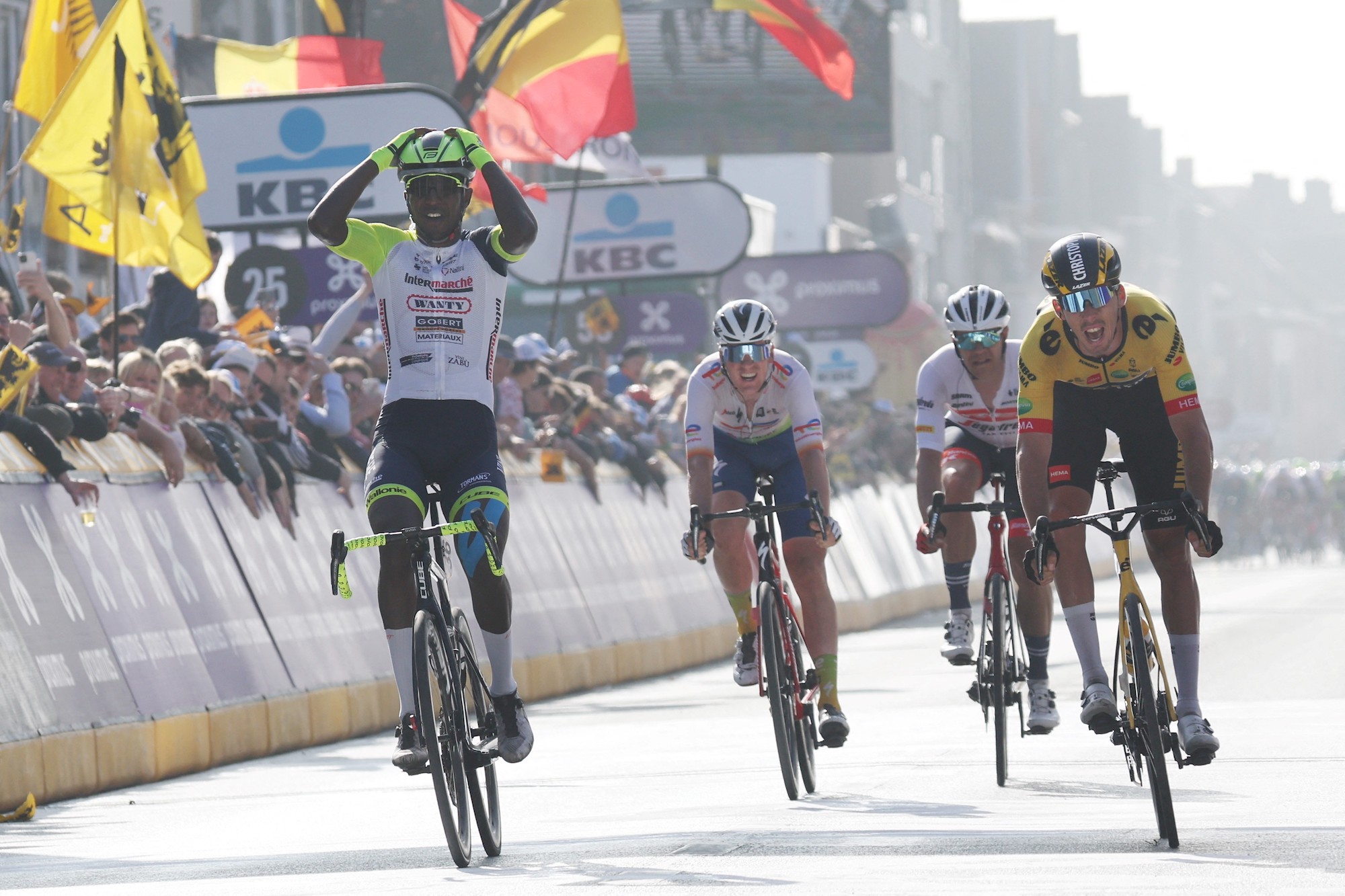
Even when they get there though its not guarantee all is well. One of the few black riders in the peloton in recent years, Frenchman Kévin Reza, was racially abused on two separate occasions by fellow professionals during his career. In 2014 Reza was abused by Michael Albasini at the Tour de France and then again in 2017 by Gianni Moscon (Astana-Qazaqstan) at the Tour de Romandie. Teammates of Reza went public with their disgust at both incidents but the majority of the peloton remained silent.
Dlamini, refreshingly, points out that he has never received any abuse from either spectators or fellow riders.
The 26-year-old says: “No, I’ve never had any negativity. When I did my first race at WorldTour level, the Tour Down Under, I remember I felt so welcome. I was congratulated by the champions. Peter Sagan and André Greipel were two I spoke to. They both made me feel very welcome and solidarity in the peloton at the time.”
With the emergence of the Black Lives Matter movement in 2020, there was an excellent opportunity for cycling and its organising bodies to highlight the sport’s need for change.
Reza was involved in a display of solidarity with the movement at the 2020 Tour de France but later deplored the lack of solidarity in cycling saying “since the Tour de France, nothing much has changed. I heard a lot of talk but didn’t see much action taken in the different organisations who manage our sport. It’s a pity but that’s how it is.”
On the final day of racing the peloton led by Kévin Reza and Tadej Pogačar (UAE Team Emirates) had made a small gesture of solidarity by wearing facemasks emblazoned with "No to Racism". Although not all riders took part.
Dlamini says this was disappointing.
“Actually it didn’t go far enough. I think this is where the phrase we use on the team ubuntu comes in. It basically means people helping each other, being there for each other. Unity, the kindness of other people. We saw it during all the covid lockdowns. What happened that year was something that should have gone a long way. Who knows, maybe then we might not be in the situation where two years later there are no black riders.”
Dlamini feels more could have been done by the race organisers to encourage riders to take part in the show of solidarity with Black Lives Matter.
“I definitely think there should have been more people taking part in the Tour that year.
"When I say everyone I mean even the race organisers you know. That was something they should have maybe stood up on more,” Dlamini said.
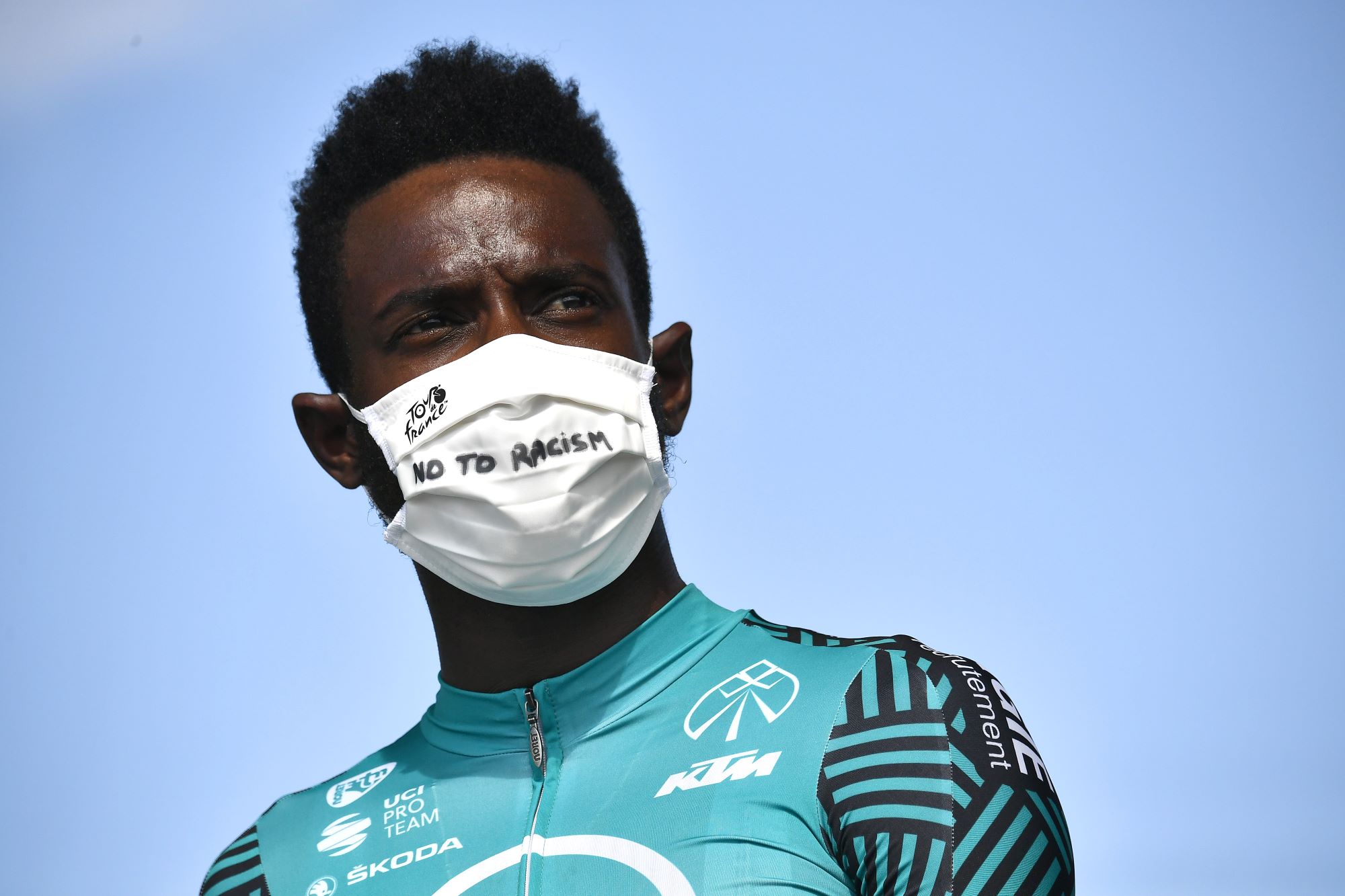
Reflecting on 2021 Dlamini says his team (Qhubeka) are working hard to get back to competing at the top level, which he clearly sees as step in the right direction. But it'll take more than one team to change the sport. The South African says that responsibility lies with team organisers and managers.
"What we need to see in future though is riders being given more opportunities, transformation and more diversity. A lot of the teams now are signing young riders, young talented riders but what about young talented Black African riders? In Africa there are many,” Dlamini says.
“Every team wants results right? Although if they just gave African riders the opportunity and got them into their setup they will be able to adapt," he says. "I think that at this point in time, there shouldn’t be any team, any team actually with only white riders.
"Every team should and could help in many ways to give African riders opportunities a chance to adapt. Then we can have more superstars like Biniam [Girmay], he got from Delko onto a World Tour team and now look at him, he wins big races.”
South African champion Reinardt Janse van Rensburg (Lotto-Soudal) adds that there also needs to be a development pipeline: “I think the problem is that there is not many grassroots, lower level teams, for cyclist to step into. There’s the Africa Tour, but races are very few and far between. They have to race in Europe, and it’s not easy coming from any country in Africa, especially if there are no teams doing it. We need to get more teams that are Africa-based to come and race in Europe, from the continental levels.”
Despite the obvious hurdles the 26-year-old Dlamini is optimistic about what lies ahead.
In ‘Reflections’ he concluded: “I’m determined to together with my team once again to take to the start line so that I can complete my dream of becoming a Tour de France finisher. Let’s hope that I won’t be standing alone when I do so.”
For the sake of progress and the good of the sport, cycling needs Dlamini’s optimistic words to ring true.
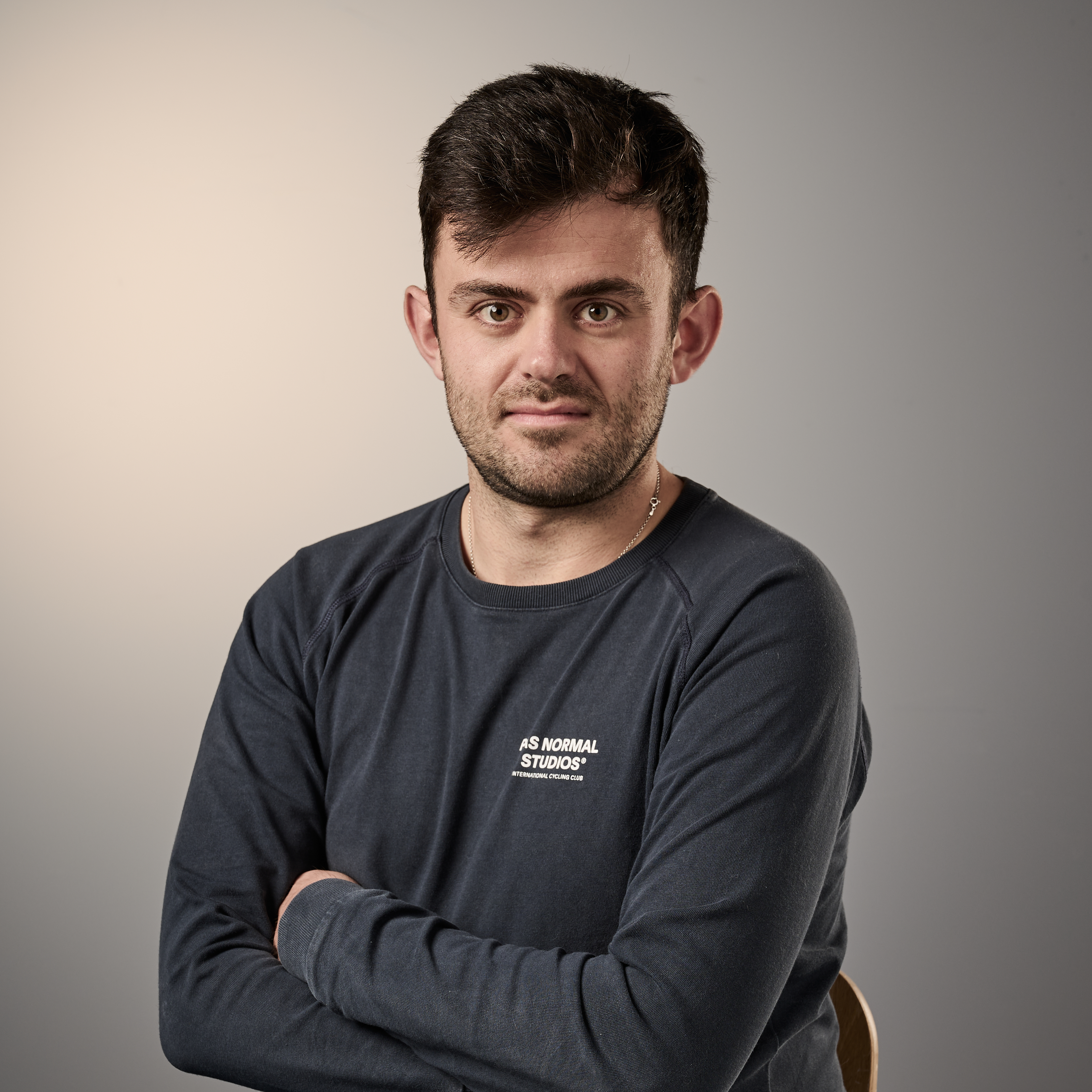
After previously working in higher education, Tom joined Cycling Weekly in 2022 and hasn't looked back. He's been covering professional cycling ever since; reporting on the ground from some of the sport's biggest races and events, including the Tour de France, Paris-Roubaix and the World Championships. His earliest memory of a bike race is watching the Tour on holiday in the early 2000's in the south of France - he even made it on to the podium in Pau afterwards. His favourite place that cycling has taken him is Montréal in Canada.